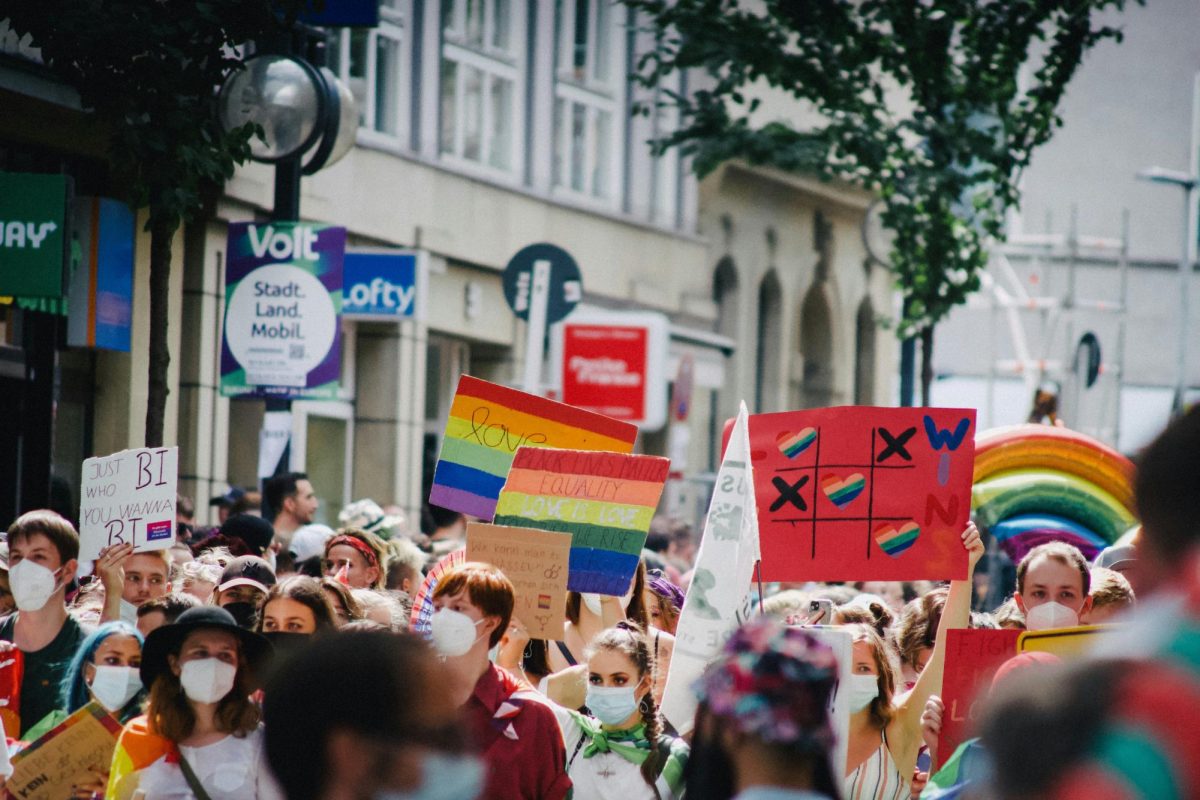Palestinian representative Haifa Al-Agha told the UN Commission on the Status of Women (CSW) on March 16, 2016: “Israel…is directing its military machinery against women and girls. They are killing them, injuring them, and leaving them bleeding to death.” Though inflammatory, this statement is not anti-Semitic, but anti-Zionist. Anti-Zionism is often conflated with anti-Semitism, particularly in American politics. American government leaders and officials are reticent in condemning Israel for fear of being labeled “anti-Semitic.”
Anti-Semitism means hostility to or prejudice against Jews. However, not all Jews are Zionists. Zionism refers to the advocacy for Jews to return to their own majority nation of Israel. Basically, Zionism is a response to anti-Semitism, as the movement arose because Jewish people were being forced out of other countries with nowhere else to go. There must be a distinction between being anti-Semitic and anti-Zionist, because they are separate concepts..
Anti-Semitism arose from a European power dynamic that involved placing Jews on the lowest rung of the social hierarchy, and treating them as outcasts and second class citizens. Therefore, the sentiment refers to a power structure that oppresses Jews and supports ethnocide against them. However, anti-Zionism is usually a response to the alleged genocide and colonialism of Palestinians by the state of Israel. For this reason, anti-Semitism cannot simply be misconstrued as anti-Zionism.
Most anti-Zionists do not target Jews. Instead, they have a problem with the state of Israel. Jews were given a large part of Palestine, which Jews considered their traditional home, much to the chagrin of the Arabs that already lived there. Since Israeli statehood, there has been incessant violence between the two nations. They are in a state of perpetual warfare. The Arabs that lived in Palestine and in the neighboring countries, feel that it is unfair for Jews to essentially take land from Palestine and call it their own. As a result, the two sides — Arabs and Jews — have been at war since 1948.
“One can be critical of Israel’s colonialism of Palestine and its human rights violations against Palestinians, without viewing Jews as unworthy of an ancestral homeland.”
It is unfair to assert that criticisms a=gainst Israel for their treatment of Palestinians are Anti-Semitic. Palestinians have lower living standards than Israelis, particularly in Gaza, which is the epicenter of the war. In Gaza, “80 percent of households earn less than $1 a day” according to The UN Relief and Works Agency for Palestine Refugees in the Near East. The infrastructure is largely in ruins from Israeli bombings. Children are afraid to go to school, and live in terror. They suffer from psychological impairments from living in war-torn conditions.
They also suffer from so much deprivation that, according to a Save the Children report, anemia, due to a lack of iron, “affects 58.6 percent of schoolchildren.” Israel has also committed human rights violations against Palestinians. The Human Rights Watch states that “[Israel’s] security forces appear to use excessive force against Palestinian demonstrators and suspected attackers, raising the specter of extra-judicial killings. It has renewed the practice of punitive home demolitions.”
Palestinians condemn Israel’s cruelty inflicted upon innocents. The UN itself, during its annual conference in Geneva, condemned Israel for violating Palestinian women’s rights. Michael Lynk, the UN’s independent human rights investigator into Israel, has stated that the state of Israel is rooted in “ethnic cleansing.”
Some people may believe that anti-Zionism is anti-Semitic, because Jews have the right to a nation of their own. However, one can be critical of Israel’s colonialism of Palestine and its human rights violations against Palestinians, without viewing Jews as unworthy of an ancestral homeland.
Anti-Zionism is simply not the same as anti-Semitism. People who advocate against Zionism do so because they believe that Israel is violating the human rights of Palestinians, and see them as perpetrators of genocide against the Palestinians people.
Alleging that people who are anti-Zionists are anti-Semitic promotes the dangerous fallacy that anyone who critiques Israel’s oppression of Palestine simply hates Jews. Let’s not silence advocates for human rights.




David Collier | Apr 30, 2016 at 3:50 am
Is antisemitism the same as antizionism? A strawman argument. The question is designed to lead people down a rabbit hole. The true question is whether most antizionists are antisemites. Look at the Facebook timestreams of those that call themselves antizionists. If you see talk of ‘Zionist money’, ‘Zionist meda’, ‘Zionist control’, ask what that has to do with a minor spat in the Middle East?
Many of those people raising the issue from the left do not have an issue with Zionism *solely* because of what they believe it does to the Arabs. For them it has become personal. They have an issue with Zionists because Zionists control the media. They have an issue with Zionist control of the banks. They have issues with Zionist control over the government, Zionist lobbies, Zionist conspiracies, Zionist money and Zionist power. Therefore, the definition becomes simple: Antisemitic antizionism involves the belief of ‘Zionist control’. That is, your opposition to Israel is rooted in antisemitism. Israel for you is the world’s Jew.